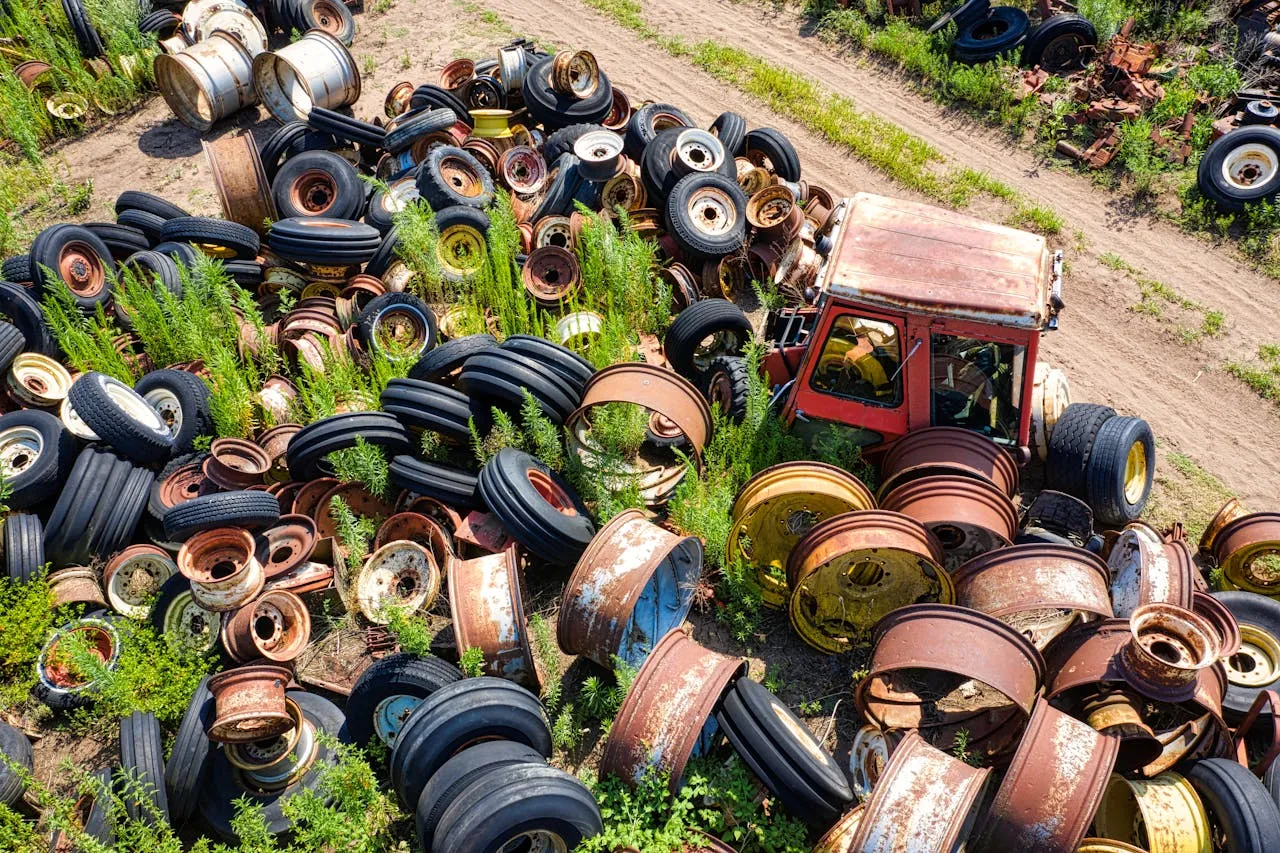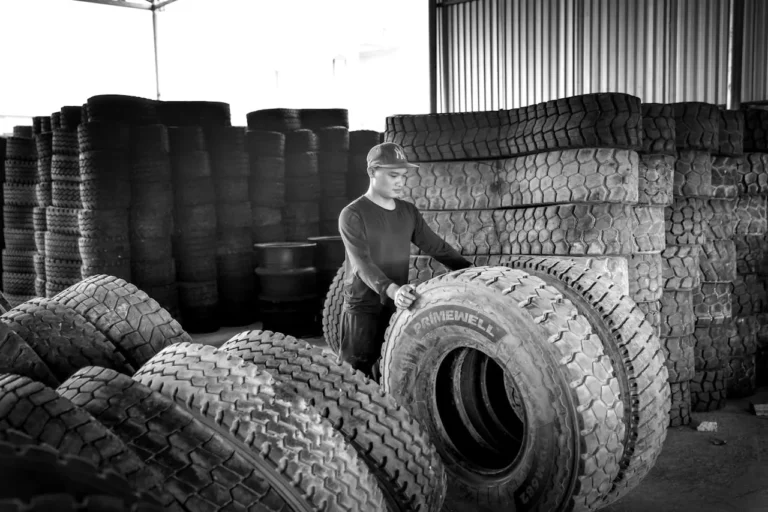
Tyre Industry in South Africa 2025: Market Dynamics, Challenges, Opportunities, and Key Players
The “Tyre Industry in South Africa 2025″ report, now available via ResearchAndMarkets.com, offers a comprehensive and data-driven analysis of the country’s tyre sector, a key component of the wider automotive industry. This detailed report covers all critical aspects of the value chain, including the manufacturing of new and retreadeds, the role of imports and exports, the significance of retail and fitment centers, and waste management.
Overview of the South African Tyre Market
South Africa boasts the largest tyre industry on the African continent, both in terms of production and consumption. This strategic position is underpinned by a well-established automotive sector, robust distribution networks, and a growing vehicle population. In 2024 alone, approximately 8.1 million new tyres were produced locally, with an additional 8 million s imported to meet demand.
Four major multinational manufacturers—Bridgestone, Continental, Goodyear, and Sumitomo (Dunlop)—dominate the domestic production landscape. These companies operate advanced local facilities that supply both original equipment manufacturers (OEMs) and the replacement tyre market. Replacement tyres account for over 70% of total tyre sales, driven by a large and aging vehicle fleet.
However, the local industry faces several headwinds. Chief among them is the influx of low-cost imported tyres, primarily from Asia, which exerts downward pressure on prices and erodes local market share. Additionally, the sale of illicit and unsafe second-hands through informal markets has emerged as a critical safety and regulatory concern.
Key Market Trends Shaping the Industry
The South African tyre market is undergoing several structural and technological shifts. Among the most significant trends are:
- A push for sustainability: Manufacturers and industry stakeholders are increasingly focused on developing eco-friendly tyres using biodegradable materials and processes that minimize carbon emissions.
- Technological innovation: There is growing investment in advanced technologies, such as smart tyres with embedded sensors, fuel-efficient low-rolling resistance tyres, and products optimized for electric vehicles.
- Urbanization and vehicle ownership: As urban centers expand and middle-class consumer segments grow, demand for personal vehicles—and thus—is increasing.
- Expansion of imports: Imports continue to rise, especially in the budget segment, leading to intensified price competition.
- Collaboration and partnerships: Industry associations are fostering greater collaboration among stakeholders to improve waste tyre management, encourage local production, and standardize safety and environmental practices.
- Retail evolution: Fitment centers and online platforms are playing a growing role in reaching consumers, offering a wider product range and added convenience.
Opportunities for Growth
Despite existing challenges, the South African tyre industry is poised for moderate growth, buoyed by several promising opportunities:
- Product innovation tailored to local conditions: There is increasing demand for tyres designed for South Africa’s diverse terrain and climate, especially in rural and off-road applications.
- Local production expansion: Investment in domestic manufacturing capabilities could enhance competitiveness and reduce dependence on imports.
- Export potential: South Africa can leverage its advanced production infrastructure to serve other African and global markets.
- Franchise development: Retail and fitment franchise models offer scalability and brand consistency, opening up business opportunities across the country.
- Skills development: There is a growing need for trained technicians, technologists, sales consultants, and customer service advisors to support industry growth.
- Electric vehicle (EV) adaptation: The rise of EVs presents opportunities to develop specialized tyres with unique performance characteristics, such as reduced noise and higher torque resistance.
- Digital transformation: E-commerce platforms and digital diagnostics tools are reshaping the retail experience and customer engagement.
- Tyre recycling industry: The demand for environmentally responsible waste management is stimulating growth in recycling and retreading.
Persistent Industry Challenges
While the outlook remains generally positive, the industry must confront several ongoing challenges that could constrain future growth:
- Competitive pressures: Price wars, particularly from low-cost imports, limit profitability and threaten local manufacturers.
- Illicit trade and counterfeit tyres: Smuggled and counterfeit products continue to flood the market, posing safety risks and undermining legitimate businesses.
- Regulatory and environmental concerns:waste management remains a major hurdle, with improper disposal contributing to environmental degradation and public health risks.
- Economic volatility: Fluctuations in exchange rates, inflation, and consumer spending affect demand and input costs.
- Raw material cost inflation: Rising prices for rubber, oil-based compounds, and other inputs are squeezing margins across the value chain.
- Labour and skills shortages: A lack of technically trained workers hampers productivity and innovation.
- Second-hand tyre market risks: The sale and use of improperly inspected second-hand s create safety hazards and regulatory challenges.
Market Outlook
The medium-term outlook for the South African tyre industry is cautiously optimistic. Market growth will likely be driven by higher vehicle sales, greater focus on exports, and technological advancements in tyre performance and sustainability. The industry’s ability to attract investment in local manufacturing and infrastructure will play a pivotal role in its resilience and long-term growth.
However, regulatory enforcement, economic uncertainty, and continued dominance of low-cost imports—particularly from Chinese suppliers—will shape the competitive landscape. To counter this, the promotion of local manufacturing hubs and innovation in eco-friendly and longer-lasting tyres will be essential.
Companies Profiled in the Report
The report includes detailed profiles of 17 prominent players in South Africa’s tyre market, covering manufacturers, importers, retreaders, and retailers:
- Apollo Tyres Africa (Pty) Ltd
- Auto and Truck Tyres (Pty) Ltd
- Bandag Southern Africa (Pty) Ltd
- Bridgestone South Africa (Pty) Ltd
- Continental Tyre South Africa (Pty) Ltd
- Goodyear South Africa (Pty) Ltd
- Hi-Q Automotive (Pty) Ltd
- Kwik Fit Brands (Pty) Ltd
- Leader Rubber Company SA (Pty) Ltd
- Michelin Tyre Company South Africa (Pty) Ltd
- Nuvo Solid Tyres (Pty) Ltd
- Pirelli Tyre (Pty) Ltd
- Stamford Tyres (Africa) (Pty) Ltd
- Sumitomo Rubber South Africa (Pty) Ltd
- Supa Quick Retail (Pty) Ltd
- Tiauto Investments (Pty) Ltd
- TyreWorld (additional regional retail inclusion, if applicable)
Report Scope and Structure
The comprehensive report spans key topics across 10 major sections:
- Introduction
- Industry Description and Value Chain Analysis
- Local Market Dynamics (trends, trade, regulations, and players)
- Regional Context: Africa
- Global Market Overview
- Market Drivers and Influencing Factors
- Competitive Environment
- Industry Summary
- Market Outlook and Forecasts
- Industry Associations and Institutional Support







